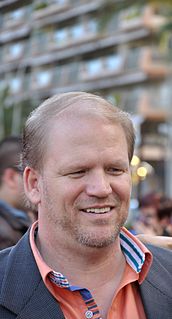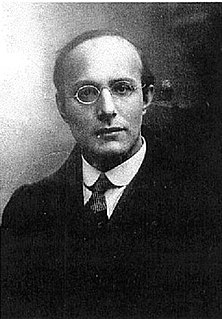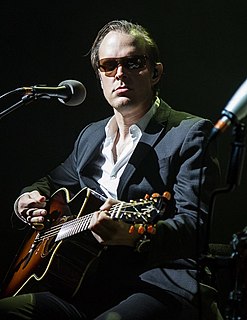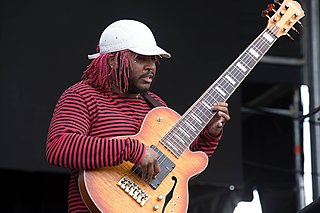A Quote by John Maynard Keynes
If the Treasury were to fill old bottles with bank-notes, bury them at suitable depths in disused coal-mines which are then filled up to the surface with town rubbish, and leave it to private enterprise on well-tried principles of laissez-faire to dig the notes up again (the right to do so being obtained, of course, by tendering for leases of the note-bearing territory), there need be no more unemployment and, with the help of repercussions, the real income of the community, and its capital wealth, would probably become a good deal greater than it actually is.
Quote Topics
Actually
Again
Bank
Bearing
Become
Being
Bottles
Bury
Capital
Coal
Community
Course
Deal
Depths
Dig
Enterprise
Fill
Filled
Filled Up
Good
Good Deal
Greater
Help
Income
Leave
Mines
More
Need
Note
Notes
Obtained
Old
Principles
Private
Private Enterprise
Real
Repercussions
Right
Rubbish
Suitable
Surface
Territory
Than
Them
Then
Town
Treasury
Tried
Unemployment
Up
Wealth
Well
Were
Which
Would
Related Quotes
You get notes from two studios and a network instead of a studio and a network. Although we early on forced them all to do their notes together. I make them all talk to each other first. Because we went through the pains of getting notes from ABC and at the time it was Touchstone, that were opposite - and then CBS notes that were opposite again. So it was, you guys are going to have to work it out as to what is the most important note.
To check centralization and usurping of power ... we require a new laissez-faire. The old laissez-faire was founded upon a misapprehension of human nature, an exultation of individuality (in private character often a virtue) to the condition of a political dogma, which destroyed the spirit of community and reduced men to so many equipollent atoms of humanity, without sense of brotherhood or purpose.
There was nothing natural about laissez-faire; free markets could never have come into being merely by allowing things to take their course. Just as cotton manufactures were created by the help of protective tariffs, export bounties, and indirect wage subsidies, laissez-faire was enforced by the state.
You never can tell, though, with suicide notes, can you? In the planetary aggregate of all life, there are many more suicide notes than there are suicides. They're like poems in that respect, suicide notes: nearly everyone tries their hand at them some time, with or without the talent. We all write them in our heads. Usually the note is the thing. You complete it, and then resume your time travel. It is the note and not the life that is cancelled out. Or the other way round. Or death. You never can tell, though, can you, with suicide notes.
When I'm back at my computer, and/or have more time to deal with the project than when I made the initial notes, I transcribe them into a Scrivener document. I create a new Scrivener file for every project, right at the start, and make a folder for these transcribed notes; when entering them, I title each note document according to date.
... And we talk it out. Lately, I've had Roy Thomas come in, and he sits and makes notes while we discuss it. Then he types them up, which gives us a written synopsis. Originally - I have a little tape recorder - I had tried taping it, but then I found no one on staff has time to listen to the tape again later. But this way he makes notes, types it quickly, I get a carbon, the artist gets a carbon ... so we don't have to worry that we'll forget what we've said.
With non-fiction writing I feel like I'm confined and driven by what actually happened. That makes the "plot". So it's a process of getting all of my notes typed up, then scanning through the notes, trying to extract or find certain vignettes that seem like they might write well - that might have a potential for good energy, shape, etc. And then at some point I start stringing these together, keeping an eye on the word count.
I'm a guy where my perfect pitch has been altered by the fact that I usually tune up to what's going on. When I was a kid, it was horrible! If two notes were playing right next to each other, and they were dissonant, it would drive me nuts. If it was something that sounded like it was in between notes, it'd make me cringe.
Strictly speaking, there are no such things as good and bad impulses. Think...of a piano. It has not got two kinds of notes on it, the 'right' notes and the 'wrong' ones. Every single note is right at one time and wrong at another. The Moral Law is not any one instinct or set of instincts: it is something which makes a kind of tune (the tune we call goodness or right conduct) by directing the instincts.
Real music will make you more and more refined. It will become more and more silent. In fact, real music will help you to listen to silence, where all notes disappear, where only gaps remain. One note comes, disappears, and another has not come, and there is a gap. In that gap meditation flows in you.
All I really know in nonfiction is that when I come home, I've got all these notes and I'm trying to figure out what actually happened to me. I usually kind of know what happened, but as you work through the notes, you find that certain scenes write well and some don't even though they should. Those make a constellation of meaning that weirdly ends up telling you what you just went through. It's a slightly different process, but still there's mystery because when you're bearing down on the scenes, sometimes you find out they mean something different than what you thought.
Adam Smith's was a real universalism in intent. Laissez Faire was intended to establish a world community as well as a natural harmony of interests within each nation... But the "children of darkness" were able to make good use of his creed. A dogma which was intended to guarantee the economic freedom of the individual became the "ideology" of vast corporate structures of a later period of capitalism, used by them, and still used, to prevent a proper political control of their power.


































